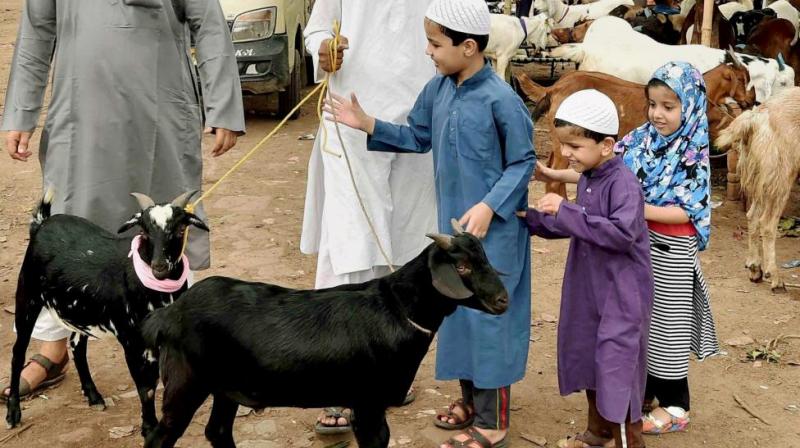Mystic Mantra: Goats and scapegoats

This week, celebrating Id-al-Adha — “festival of sacrifice”, or “Bakri-Id” — goats will be slaughtered in sacrifice. This feast is celebrated by Muslims to commemorate the willingness of Ibrahim to sacrifice his son in obedience to Allah’s command. Ibrahim, known as “Abraham” by Jews and Christians, is a common “father of faith” on account of his trust in God’s providence.
The Ibrahim/Abraham story narrates that Allah/God merely wanted to test his faith by asking him to sacrifice his son, Ishmael/Isaac. When the time for sacrifice came, Ibrahim was stopped by God, and a ram in a nearby bush ultimately became a substitute for his son. Goats, therefore, are symbols of victims in Semitic sacrificial systems.
At the biblical “Day of Atonement” the community recognised its’ sin and made amends by sacrificing two goats — one “for the Lord”, the other as “scapegoat”. The former would be slaughtered and its blood sprinkled near the “mercy seat” in a sanctuary where God was believed to dwell, while the “scapegoat” was driven into the wilderness after the people confessed their sins.
Derived from the Hebrew “la-Azazel”, the English “scapegoat” means goat of “removal” or “sender away” of sins. It’s also translated as “escape goat”, i.e., in order to escape from one’s own evil or sin, an individual or community finds an external victim who is blamed for the sin and evil which is actually lurking within.
“One man must die to save the nation,” said Caiaphas, high priest in Jesus’ time, to justify the crucifixion of Jesus. Did Jesus offer up his life as a sacrifice? Or, was he crucified by the religious elite and political powers of his day to mask their own malice and madness? Many theories seek to explain his death. He is metaphorically seen as “Lamb of God who takes away the world’s sin”.
French thinker René Girard hypothesises that human beings desire certain ends, which are often unattainable. When a group of people do not acquire what they desire, tension is created, which seeks to be resolved. Unable to resolve rising, internal tension, they target a scapegoat, who is blamed for the sorry state of affairs. Word spreads that if this scapegoat is sacrificed, peace will prevail.
History indicates that despots like Hitler and groups like the KKK (Ku-Klux-Klan) of North America have scapegoated others simply because they have practised another religion or belong to another ethnic group. Post-violence, rather than achieve peace, such societies have become more violent. The spiral of violence can never be broken.
Rather than seek serenity in scapegoating, an individual or a society that can accept its own evil lurking within and seek reform is likely to be the g.o.a.t. — acronym for “greatest of all time.”

